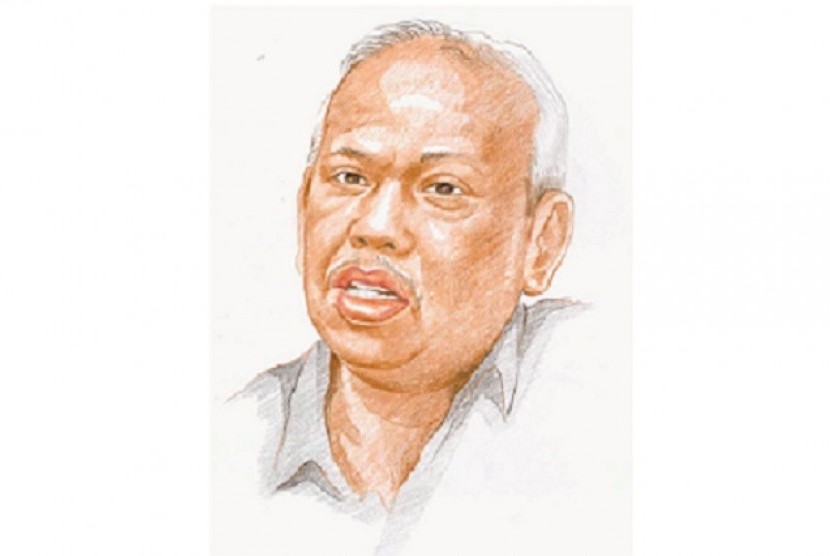REPUBLIKA.CO.ID, By: Azyumardi Azra
Freedom of expression and freedom of religion are freedoms guaranteed in the Universal Declaration of Human Rights (UDHR). Freedom of expression is a prerequisite for freedom of religion, namely faith, practice, and religious broadcasting.
However, for some people in Europe and North America, freedom of expression and a number of other freedoms seemed to be worried. The last case was when there were several Muslim attacks on office of French satirical magazine, Charlie Hebdo, some time ago.
Facing this unpleasant incident, the question is whether it is possible to guarantee freedom of expression and at the same time still provide respect to religion. How democracy, which guarantees freedom of expression and freedom of religion, can be related to one another and can be run more harmoniously.
The problems and issues which were related to incidents, discourses and perceptions had became main themes in the "Warsaw Dialogue for Democracy (WDD)", in Warsaw, Poland (22-24/10). The resonance writer got an opportunity to become speaker in Panel III of WDD on "Freedom of Expression and Respect for Freedom of Religion or Belief".
According to the writer, related to Charlie Hebdo incident and a number of other cases such as Jyllen Posten cartoons newspaper in Denmark, Islam and Muslims was often perceived in the West as a dogmatic, intolerant, and incompatible with freedom of expression, freedom of religion, and other freedom stated in UDHR.
This perception is not entirely wrong. Many Muslim-majority countries in the Middle East, South Asia, and Africa have a poor record on freedom of expression and freedom of religion. Many Muslim countries, especially in the Middle East, continued to show a deficit of democracy. The democratic wave that is commonly known as the Arab Spring was replaced by the Arab Winter, when the transition and consolidation of democracy looked increasingly away.
These countries, started from Libya, Egypt, Yemen and Syria, continued to experience political violence and war --political instability which resulted exodus of refugees from Syria, Libya, Iraq, and Afghanistan to Europe. Only Tunisia who managed to make democratic consolidation.
This fact was contradicted with the teachings of the Quran which guarantees freedom of expression and freedom of religion. It was also contradicted with the practice of the Prophet Muhammad, when he became the Medina leader and applied Medina Charter which provided freedom of expression and freedom of religion to Muslims and Jews --it include other non-Muslim groups.
Furthermore, according to the writer of this resonance in front of audiences of WDD, there were several factors that cause the freedom of expression, freedom of religion, other freedom as stated in the UDHR could not be realized.
The first factor is the political system. Since the post-World War II, there were many Muslim-majority countries under the authoritarian regimes of militarism, tribalism, theocracy, oligarchy and family. Until a wave of democracy in the end of 2010, the ruling regimes did repression against its citizens.
Violence in the name of the state was challenged by non-state actors, namely radical Islamist group who committed acts of violence and terrorism. The result was a cycle of violence and terror that could not be stopped.
The second factor is the strength of religious sectarianism, tribes, and politics. The sectarianism occurred among Sunnis or Shi'ite. The sectarianism circle could not be concluded, even it increased in Syria and Yemen. Each party was supported by the state; Sunni was backed by Saudi Arabia and Qatar, while Shi'ite was backed by Iran.
In such circumstances, the third factor is the absence of civil society which is absolute to be mediator between the state and the society. The civil society had been fully co-opted by the state.
There is no instant way to improve the situation. However, if freedom of expression and freedom of religion and democracy can be done, the consolidation of democracy becomes imperative --although it takes a long time.
No less important is to reduce religious sectarianism by developing Islam wasathiyah --Islam as a middle way that is inclusive, accommodate, and tolerant.
In the closing session, Mr. Wojciech Ponikiewski, director for United Nations and Human Rights Ministry of Foreign Affairs of Poland concluded that freedom of expression should be maintained with the strengthening of respect for religion. Therefore, the use of freedom of expression for insulting religion is counterproductive.


